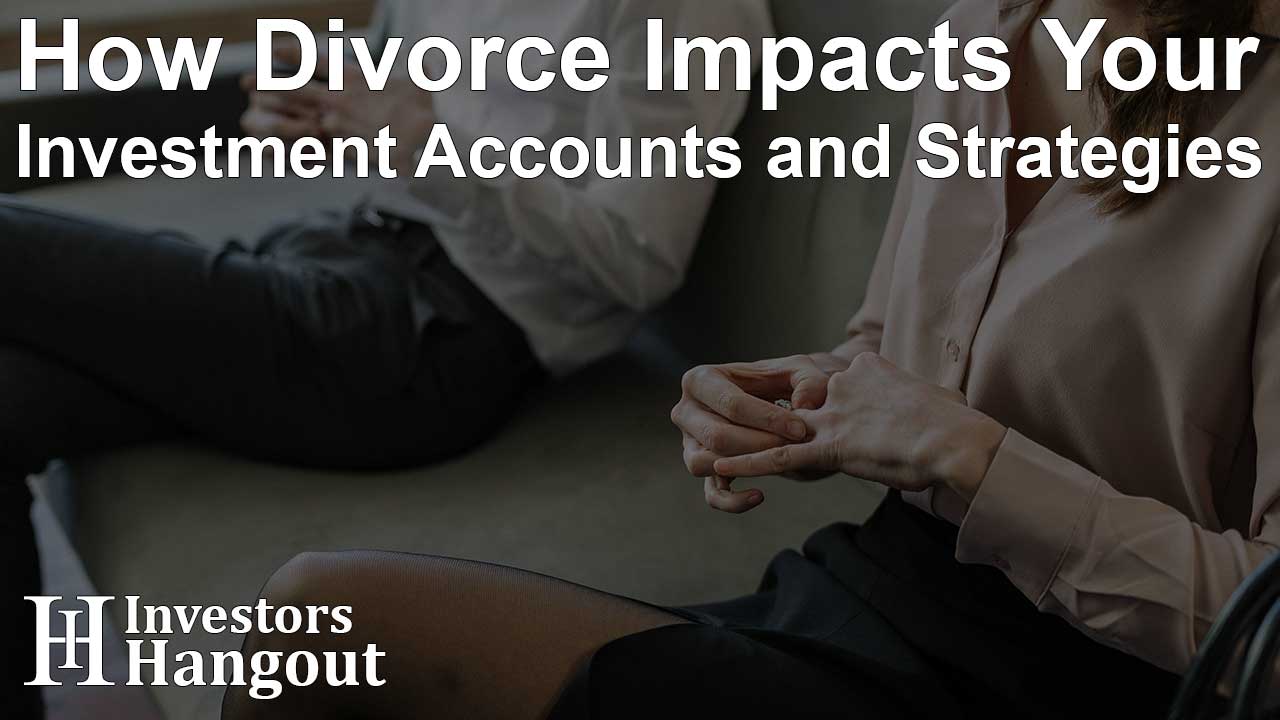How Divorce Impacts Your Investment Accounts and Strategies

Divorce is one of life’s most challenging transitions. This is not only the case for one’s emotions but will also have a financial impact. When marriages end, the effects are felt much further than just a separation of household, particularly affecting investment accounts and long-term financial strategies. Understanding these impacts and preparing for the changes ahead can help individuals navigate this transition with ease.
Division of Investment Assets During Divorce
The division of investment accounts can be one of the most complicated aspects of the separation process. Courts will take various factors into account when determining how investment assets should be split. This includes the length of the marriage, each spouse’s financial contributions and state-specific laws regarding marital property. In community property states all assets obtained during marriage will be split 50-50 while equitable distribution states will focus on a fair division of property which does not always mean equal division.
Retirement accounts face different rules and considerations during a division of assets. Retirement accounts such as 401(k)s and IRAs require special attention. A Qualified Domestic Relations Order (QDRO) is often required to ensure proper division of these assets. Brokerage accounts might need to be liquidated or transferred to minimize potential tax implications.
Tax Consequences When Dividing Investment Accounts
Transfer of assets between divorcing couples does not typically trigger any immediate tax consequences. Future tax liabilities should be carefully considered when dividing assets. Capital gains tax need careful attention as they can affect the real value of inherited investment positions.
To minimize tax implications, divorcing couples can use several strategies to their advantage. This includes balancing high-basis and low-basis assets between parties, timing transfers to optimize tax outcomes, and to carefully structure the division of retirement accounts to avoid withdrawal penalties and unnecessary tax burdens.
Changing Your Investment Strategy After Divorce
Individuals need to reassess their investment approach following an divorce. What worked as a married couple might no longer align with new individual goals or financial realities. Risk tolerance might be lowered when independently managing finances and investment timelines will need to be adjusted to account for new circumstances.
Key considerations for post-divorce investment strategies include:
-
Evaluating current income needs and adjusting investment allocations accordingly
-
Reassessing retirement planning timelines and contribution strategies
-
Considering new insurance needs and emergency fund requirements
-
Adjusting asset allocation to match new risk tolerance levels
-
Implementing new estate planning strategies that reflect changed family circumstances
Securing Investment Strategies After a Divorce
While divorce significantly impacts investment accounts and strategies, it also presents an opportunity to reassess and rebuild your financial foundation. Understanding the aspects of tax implications and investment strategies allows you to make informed decisions about your financial future.
Take proactive steps to understand and manage these changes. Seeking professional guidance and maintaining a long-term perspective on financial planning can help ensure a more secure financial future. If you need professional advice on the division of assets following a divorce, you can go here.
About The Author
Contact Kelly Martin privately here. Or send an email with ATTN: Kelly Martin as the subject to contact@investorshangout.com.
About Investors Hangout
Investors Hangout is a leading online stock forum for financial discussion and learning, offering a wide range of free tools and resources. It draws in traders of all levels, who exchange market knowledge, investigate trading tactics, and keep an eye on industry developments in real time. Featuring financial articles, stock message boards, quotes, charts, company profiles, and live news updates. Through cooperative learning and a wealth of informational resources, it helps users from novices creating their first portfolios to experts honing their techniques. Join Investors Hangout today: https://investorshangout.com/
